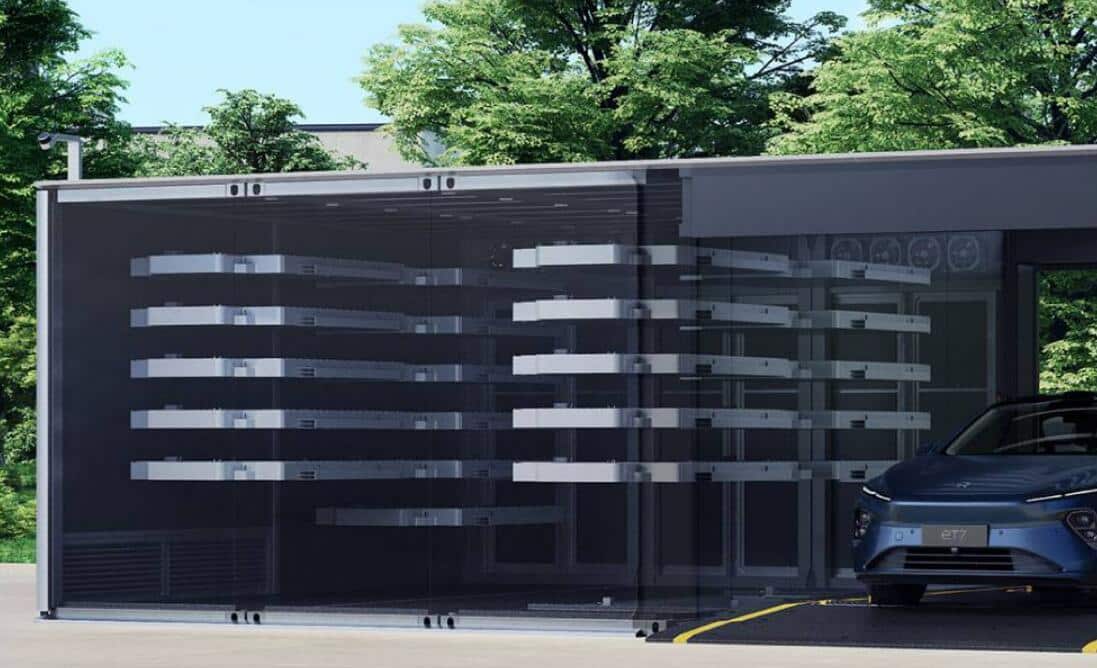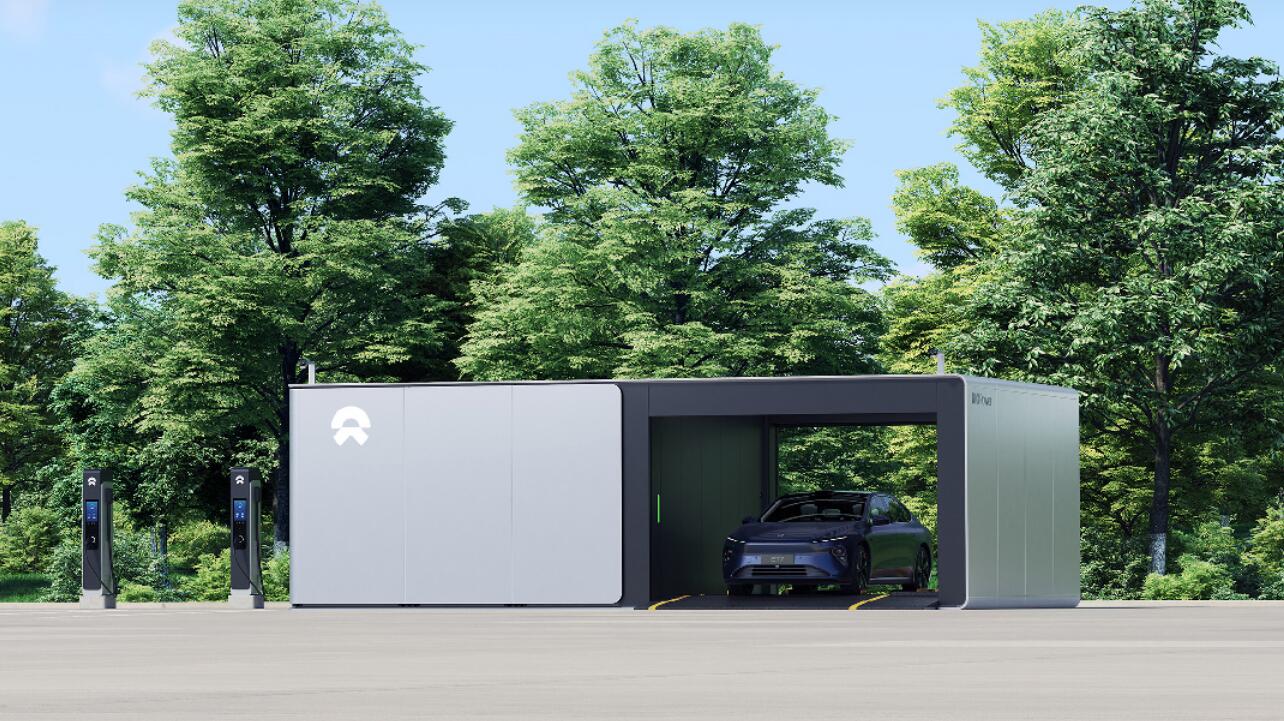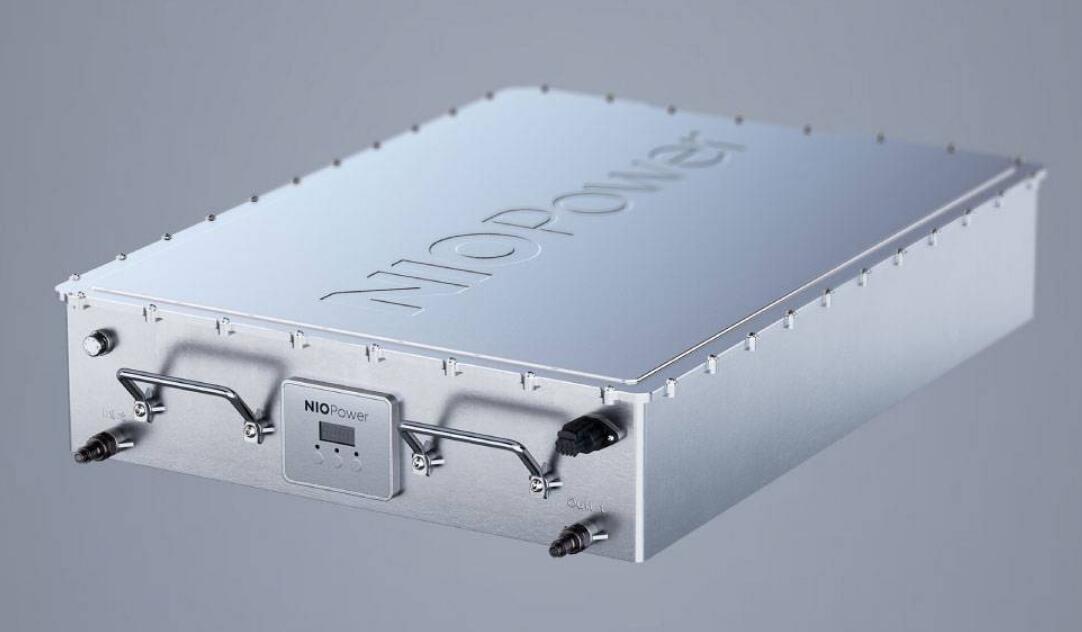LiDARs and Nvidia Orin chips enable more accurate vehicle-station collaboration to support functions such as summoning and auto-parking.
Nio officially unveiled its third-generation battery swap station at the Nio Day 2022 event held in Hefei, Anhui province on December 24, bringing a boost to battery replacement efficiency.
The new battery swap station can store up to 21 battery packs, up from 13 in its predecessor and 5 in the first generation of the facility.
The third-generation battery swap station increases the daily service capacity of a single station to 408, a 30 percent increase over the second generation.
Nio vehicles can change batteries at the new stations in as little as 2 minutes and 30 seconds, 20 percent faster than the previous generation.
Notably, Nio is also equipping two LiDARs and two Nvidia Orin chips on the third-generation battery swap station, with a total computing power of 508 TOPS.
Nio's current NT 2.0-based models are equipped with one LiDAR and four Orin chips, with a total computing power of 1,016 TOPS.
LiDARs and Nvidia Orin chips enable more accurate collaboration between vehicles and stations to support intelligent battery swap functions including summoning and auto-parking, according to Nio.
The third-generation battery swap station uses Nio's self-developed HPC bi-directional high-power liquid-cooled power module, with a maximum efficiency of 98 percent and a charge/discharge power of 62.5 kW, thus improving battery charge/discharge efficiency, the company said.
Nio's third-generation battery swap station will be available in March 2023, the company said.
In addition to announcing the new battery swap station, William Li, Nio's founder, chairman and CEO, said Nio aims to have more than 1,700 of the facilities in China by the end of 2023.
The company's goal is to have more than 1,300 facilities in China by the end of this year, and its latest goal means it plans to build more than 400 battery swap stations in 2023.
As of December 24, Nio had 1,286 battery swap stations in China, as well as 2,239 charging stations, providing 13,083 charging piles.



